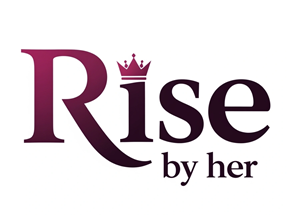In today’s fast-paced and ever-changing business landscape, emotional intelligence (EQ) has become a game-changer for women in leadership. Whether you’re leading a team, driving innovation, or navigating organizational challenges, EQ empowers women to make informed decisions, foster meaningful connections, and thrive in leadership roles. But what exactly is emotional intelligence, and why does it matter so much for women leaders? In this post, we’ll explore how emotional intelligence can elevate your leadership capabilities and provide actionable strategies to develop this crucial skill. Let’s dive into how EQ can be the key to unlocking your leadership potential!
Understanding Emotional Intelligence and Its Role in Leadership
Emotional Intelligence (EQ: Emotional Quotient) is the ability to recognize, understand, and manage our own emotions while also being able to influence the emotions of others. In leadership, particularly for women, EQ plays a pivotal role in shaping how leaders navigate complex relationships, make informed decisions, and inspire their teams. Research consistently shows that leaders with high EQ are more effective in driving success, fostering collaboration, and creating an inclusive work environment.
Why EQ is Crucial for Women in Leadership
As a woman leader, cultivating emotional intelligence can give you a competitive edge. Women often face unique challenges in leadership positions, such as breaking through gender biases or navigating the complexities of balancing empathy with authority. EQ allows women leaders to address these challenges by providing them with tools to maintain emotional resilience, communicate effectively, and make thoughtful, unbiased decisions.
The Five Key Components of Emotional Intelligence
Emotional intelligence is broken down into five key components that, when developed, empower women leaders to lead with empathy, clarity, and confidence:
- Self-awareness: The ability to understand your own emotions and how they impact others. It allows you to manage your reactions in high-pressure situations, a critical trait for leadership.
- Self-regulation: The ability to control impulsive reactions, stay calm under pressure, and approach situations with patience and clarity. Women leaders with strong self-regulation are better equipped to handle stress and lead by example.
- Motivation: A deep inner drive to achieve goals and persist through setbacks. Motivated leaders inspire their teams to push through challenges and stay focused on the bigger picture.
- Empathy: Understanding and sharing the feelings of others, which is essential for building trust and fostering an inclusive work environment. Empathy in leadership helps women connect with their teams, enhancing collaboration and problem-solving.
- Social skills: The ability to manage relationships and influence others in a positive way. Strong social skills are vital for networking, teamwork, and managing conflicts, all of which are part of successful leadership.
How EQ Drives Success in Leadership
Leaders with high emotional intelligence can navigate challenges with a balanced approach that integrates emotional awareness with decision-making. This results in stronger relationships with team members, better conflict resolution, and a more supportive, collaborative culture. For women in leadership, EQ is particularly essential for overcoming gender-based challenges, as it enables them to lead with empathy and authority in equal measure, while also fostering a more inclusive environment.
By honing your emotional intelligence, you can position yourself as a more influential, compassionate, and successful leader.
The Impact of Emotional Intelligence on Women Leaders’ Success
Emotional Intelligence (EQ) plays a vital role in empowering women leaders to excel in their careers. It is more than just a personal trait; it’s a tool that directly impacts leadership performance. High EQ allows women leaders to manage stress, handle challenges with resilience, and make decisions that take into account both the emotional and logical aspects of a situation. This ability is crucial in today’s fast-paced and complex work environments, where effective leadership requires more than just technical expertise.

Enhancing Leadership Performance with EQ
Women with high emotional intelligence are better equipped to lead diverse teams and navigate organizational challenges. By understanding their own emotions and those of others, they can maintain strong relationships, manage conflicts, and inspire trust. This enables them to create cohesive, motivated teams that can adapt and succeed.
Building Trust and Collaboration
EQ enables women leaders to build trust and collaboration across diverse teams. It fosters open communication, empathy, and understanding—key elements in leadership that create a supportive work environment. With high EQ, women can manage interpersonal dynamics more effectively, ensuring their teams remain united and productive.
Real-World Examples
Many successful women leaders, such as Indra Nooyi (former CEO of PepsiCo) and Sheryl Sandberg (COO of Facebook), have publicly credited their emotional intelligence as a cornerstone of their leadership success. Their ability to empathize, communicate effectively, and navigate difficult situations with grace has been crucial in their leadership journeys.
Developing Emotional Intelligence: Practical Steps for Women Leaders
Improving emotional intelligence (EQ) is an ongoing process that can significantly enhance leadership effectiveness. For women in leadership roles, developing EQ can help improve communication, decision-making, and relationship-building. Below are practical steps and strategies to help women leaders strengthen their emotional intelligence.
Self-Reflection and Awareness: Recognizing Your Emotional Triggers
The first step to developing emotional intelligence is self-awareness. Women leaders can begin by recognizing their emotional triggers and how these emotions influence their decisions and behaviors. Keeping a journal or practicing mindfulness can help increase self-reflection, allowing leaders to understand their responses in different situations. Regularly asking themselves questions like “How did I feel during this situation?” or “Why did I react that way?” is a powerful tool for self-growth.
Practicing Empathy: Building Stronger Relationships with Team Members
Empathy is a crucial element of emotional intelligence. Women leaders should focus on developing their ability to understand and share the feelings of others. This can be achieved by actively listening, showing genuine interest in others’ perspectives, and responding in a thoughtful manner. Practicing empathy helps build trust and strengthens relationships within teams, leading to better collaboration and a more positive work environment.
Techniques for Enhancing Emotional Regulation and Decision-Making Under Pressure
Leadership often involves making high-stakes decisions under pressure. Emotional regulation (managing one’s emotions in a constructive way) is vital in these situations. Women leaders can practice techniques such as deep breathing, pausing before reacting, or taking time to cool off in stressful situations. These strategies help leaders make more thoughtful, balanced decisions rather than reacting impulsively.
Fostering Emotional Intelligence Through Coaching, Training, and Daily Practices
Developing emotional intelligence is a skill that can be cultivated through coaching and training. Leadership development programs and workshops on emotional intelligence can help women leaders enhance their EQ. Additionally, regular daily practices such as mindfulness, gratitude exercises, and active listening can further foster emotional intelligence and improve leadership capabilities over time.
By consistently practicing these strategies, women leaders can strengthen their emotional intelligence and become more effective, compassionate, and confident in their roles.
Emotional Intelligence and Leadership Styles: How Women Leaders Can Benefit
Emotional intelligence (EQ) plays a significant role in shaping leadership styles, helping women leaders navigate challenges and build stronger, more cohesive teams. By understanding how emotional intelligence complements various leadership approaches, women leaders can adopt styles that resonate with their strengths and foster a more inclusive and productive workplace.
How Emotional Intelligence Complements Various Leadership Approaches
Emotional intelligence is a valuable asset in several leadership styles, including transformational, servant, and authentic leadership.
- Transformational Leadership: Women who lead with transformational qualities inspire and motivate their teams to exceed expectations and achieve shared goals. EQ enhances transformational leadership by helping leaders empathize with their team’s needs and provide the emotional support necessary to drive change.
- Servant Leadership: This style focuses on empowering and uplifting team members. Women leaders who embrace servant leadership use their emotional intelligence to serve their team’s needs, ensuring their voices are heard, and fostering collaboration. EQ supports this by allowing leaders to understand and respond to the personal and professional needs of their employees.
- Authentic Leadership: Authentic leaders lead with honesty and integrity, staying true to their values. Emotional intelligence helps women in leadership roles remain self-aware, make decisions in line with their principles, and build trust with their teams. EQ encourages leaders to be transparent about their emotions, building stronger bonds and fostering a culture of trust.
Why EQ is Especially Important for Women Leading Diverse Teams
Women often lead diverse teams, bringing together individuals from various backgrounds, experiences, and perspectives. Emotional intelligence enables women leaders to navigate these complexities by understanding diverse emotional needs, bridging gaps in communication, and fostering an inclusive environment where everyone feels valued. This skill is critical for women managing teams across different cultures, genders, and generational groups.
Benefits of Adopting an Emotionally Intelligent Leadership Style
For both women and their organizations, adopting an emotionally intelligent leadership style offers numerous benefits:
- Improved Team Collaboration: EQ enhances communication and empathy, which helps foster collaboration and reduce conflicts.
- Stronger Employee Engagement: Women leaders who exhibit emotional intelligence can motivate and engage their teams more effectively, resulting in increased job satisfaction and productivity.
- Enhanced Decision-Making: By understanding both their own emotions and those of others, women leaders can make more informed, balanced decisions that benefit both the team and the organization.
Ultimately, adopting an emotionally intelligent leadership style enables women leaders to create work environments where employees feel supported, valued, and empowered to perform at their best. This leads to greater success and higher retention rates, both for women leaders and the organizations they lead.
Overcoming Challenges for Women Leaders Through Emotional Intelligence
Women leaders face unique challenges in the workplace, such as gender bias, stereotypes, and the pressure to prove themselves. Emotional intelligence (EQ) plays a vital role in overcoming these hurdles, enabling women to thrive as effective leaders.
- Gender Bias and Stereotypes: Women in leadership roles often encounter bias and stereotypes questioning their authority. Emotional intelligence helps women manage these challenges by fostering self-awareness and emotional regulation. This allows them to handle criticism and push past biases with confidence.
- Building Resilience and Handling Criticism: Resilience is key to overcoming leadership challenges. By developing empathy and self-regulation, women leaders can process negative feedback without losing focus. Emotional intelligence helps them remain calm, learn from criticism, and stay motivated, even during tough times.
- Breaking Barriers and Gaining Respect: EQ empowers women to foster strong relationships, build trust, and create inclusive environments. By leveraging empathy and social skills, women can break leadership barriers, challenge the status quo, and be respected leaders in their organizations.
The Future of Women Leadership: Emotional Intelligence as a Competitive Advantage
As the future of work leans toward collaboration, innovation, and emotional agility, emotional intelligence (EQ) is becoming a powerful differentiator, especially for women leaders. The ability to lead with empathy, adapt quickly, and build inclusive teams gives women a unique edge in tomorrow’s business landscape.
Why EQ is Vital for the Future of Leadership:
- Navigating Complexity and Change: The future workplace will be shaped by rapid technological shifts, hybrid teams, and global connectivity. Emotional intelligence equips women to stay adaptable, communicate clearly, and lead with empathy (skills essential for guiding teams through change).
- Sustaining Leadership in High-Stakes Fields: In industries like tech, politics, and entrepreneurship, EQ helps women navigate stress, inspire innovation, and build trust. It supports long-term leadership success, especially in fields where emotional nuance is as critical as strategic thinking.
- What Experts Are Saying: Thought leaders and researchers agree: EQ is a top leadership skill for the future. Reports from McKinsey and Deloitte highlight emotional intelligence as key to driving inclusive leadership and organizational resilience (areas where women are already excelling).
In short, emotional intelligence isn’t just a soft skill; it’s a strategic asset for women ready to shape the future of leadership.
Actionable Resources to Develop Emotional Intelligence for Women in Leadership
Emotional intelligence can be learned and strengthened over time, and there are countless resources designed specifically to support women leaders on this journey. From insightful books to expert-led training, here’s where to start building your EQ toolkit.
Recommended Books:
- Emotional Intelligence 2.0 by Travis Bradberry & Jean Greaves – A practical guide with assessments and strategies.
- Dare to Lead by Brené Brown – Focuses on vulnerability, courage, and empathy in leadership.
- The EQ Edge: Emotional Intelligence and Your Success by Steven J. Stein – Explores EQ in professional environments.
Recommended Podcasts:
- The Women’s Leadership Podcast – Features real stories and EQ-related insights from women leaders.
- Lead to Win – Covers emotional intelligence and strategic leadership tools for women.
Courses & Training Programs:
- LinkedIn Learning: Offers multiple emotional intelligence courses tailored to leadership and communication.
- Coursera: Look for courses like Leading with Emotional Intelligence by Case Western Reserve University.
- Harvard Business Online: Short, executive-focused leadership programs that include EQ training modules.
- TalentSmart EQ Training: Professional coaching and seminars designed around Emotional Intelligence 2.0.
Networking Groups & Leadership Organizations:
- Lean In Circles – Small peer groups for women focusing on growth, communication, and leadership confidence.
- Ellevate Network – Offers workshops and panels that help women leaders improve soft skills like empathy and resilience.
- Women in Leadership Nexus (WIL) – A high-impact leadership community offering access to personal development and EQ resources
Emotional intelligence isn’t just a soft skill; it’s a powerful leadership asset that helps women rise, thrive, and lead with impact. By understanding and strengthening your EQ, you’ll be better equipped to handle challenges, inspire teams, and create lasting influence in any leadership role.
Ready to lead with confidence? Subscribe to our newsletter for more leadership insights


